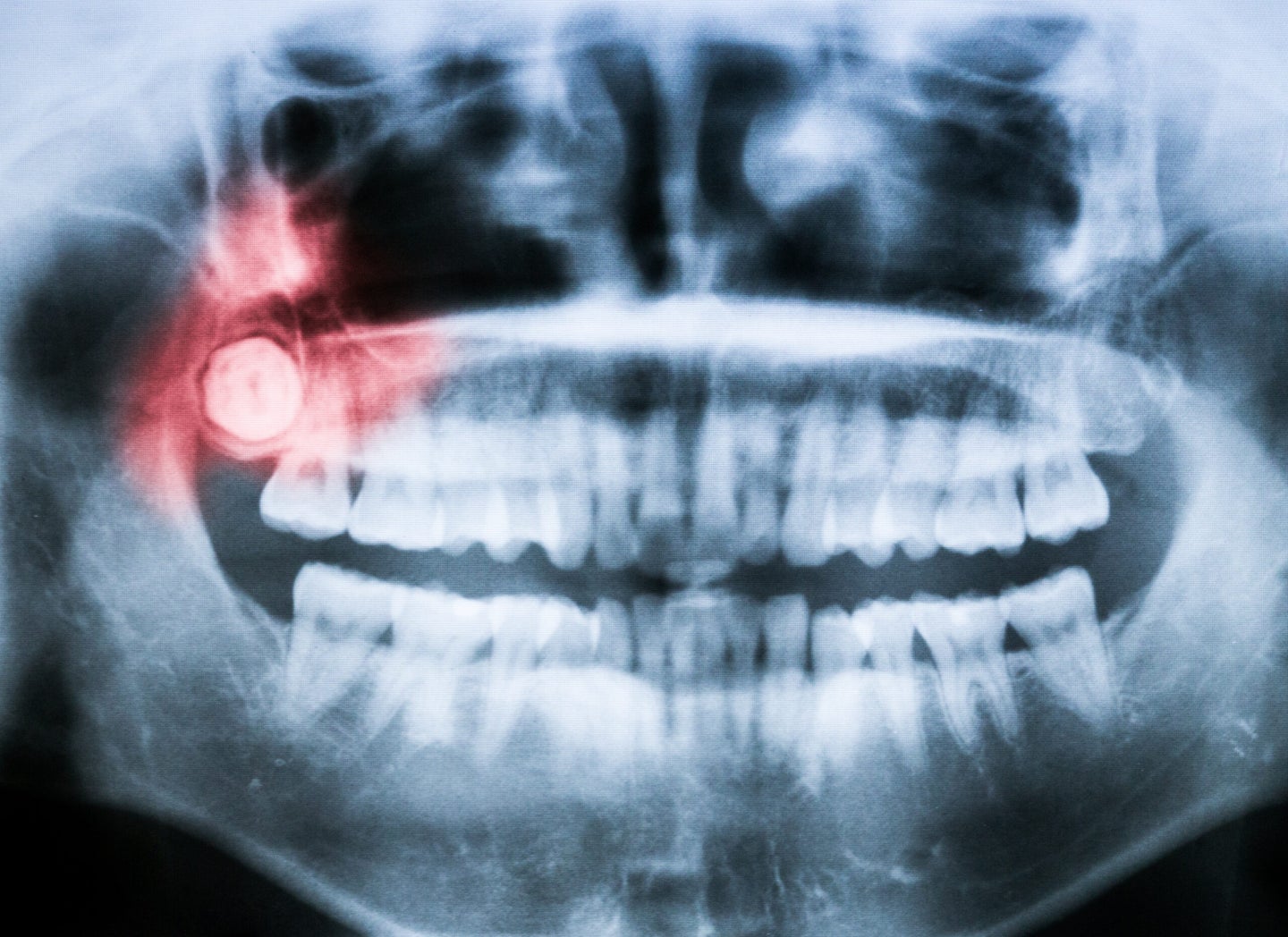We finally know why we grow wisdom teeth as adults
Other primates have them too, but ours come in a lot later in life.

The pace of our lives are closely intertwined with so many things: hormonal changes, literal growing pains, and (of course) dental development. Most of us don’t remember teething, but plenty recall having our wisdom teeth erupt and, if you live in a place that regularly removes them, getting them yanked out of your jaw. It’s just one dental milestone and one of three molar milestones, but until recently we had no idea why wisdom teeth emerged so late in life.
A new study in Science Advances suggests a reason: our jaws are simply late bloomers.
“It turns out that our jaws grow very slowly, likely due to our overall slow life histories and, in combination with our short faces, delays when a mechanically safe space—or a ‘sweet spot,’ if you will—is available, resulting in our very late ages at molar emergence,” said Gary Schwartz, a paleoanthropologist at the Institute of Human Origins at Arizona State University, who co-authored the paper, in a press release. It’s easy to forget that our teeth undergo quite a bit of mechanical pressure as they chomp down on food, as does your entire jaw structure. And that means your jaw needs to be developmentally ready to have teeth all the way at the back of our mouths nearest the joint. If wisdom teeth emerged earlier, the molars could actually damage the jaw they’re growing out of.
[Related: Ancient dental plaque shows humans have always loved carbs.]
All of this is the result of two fundamental things about humans: we have prolonged lives and short faces. Life, short as it may seem, is pretty stretched out for humans in comparison with other creatures, even other primates. We develop slowly—we take our time—and we spend an inordinately long period just becoming adults. And, unlike our primate cousins, our faces are quite flat and squashed. Just take a look at chimpanzees or gorillas; you’ll notice that their jaws protrude outwards such that their mouths are mostly in front of their brain (though you probably never thought of it that way). Our faces are pulled in, sitting beneath our braincase.
The combination of these factors means that our jaws can’t accommodate that final set of molars until fairly late in life.
Lots of people in the US get their wisdom teeth taken out, which might make you think that they’re some kind of evolutionary leftover—some artifact of a prehistoric life that’s no longer relevant. But the truth is that you don’t necessarily need to get them removed. In the UK, for instance, wisdom teeth are only removed if they become problematic, as the National Health Service notes that there is otherwise no proven benefit (but there is the added complication of having a minor surgery).
Either way, the teeth are not so much a leftover as they are a sign of our evolutionary progress. Our squashy faces and slow development are part of what makes us human, weird dental development and all.
Is your head constantly spinning with outlandish, mind-burning questions? If you’ve ever wondered what the universe is made of, what would happen if you fell into a black hole, or even why not everyone can touch their toes, then you should be sure to listen and subscribe to Ask Us Anything, a podcast from the editors of Popular Science. Ask Us Anything hits Apple, Anchor, Spotify, and everywhere else you listen to podcasts every Tuesday and Thursday. Each episode takes a deep dive into a single query we know you’ll want to stick around for.